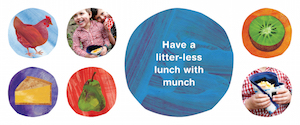toilet training
Learning to use the toilet is a big step for toddlers and it can be difficult for some. Some children just seem to train themselves when they are ready, but many need some help from their parents. Parents see toilet training as an important milestone for their children and often become concerned if it doesn’t all go smoothly. For toddlers it is something new to learn. It is one of the steps from being a baby to fitting in with what other people want.
Be prepared to wait until your child is ready. Most toilet training problems can be avoided if you don’t start too early. Don’t try and set a date to have your child to be toilet trained, e.g. before the new baby arrives. This is almost a sure recipe for failure. It works best if there is no pressure and you toilet train your child at the pace he can manage.
Sometimes the bowel gets used to being full of poo all the time. Then it loses some of the feeling, so the child will find it hard to know when he needs to go to the toilet - he doesn’t get the message that he needs to go. Medical help is needed to get it started again.
You should also see your doctor if there are signs of urinary (bladder) infections:
The causes can include:
What to do
The information above is for parents of children under five years of age. If problems with soiling go on longer than this you may need professional help. Soiling or wetting during the day can be a distressing problem for children and they need our help.
Article provided courtesy of Parenting SA
When will my child be ready?
- Most children are not ready to learn to control their poo and wee (bowels and bladder) until they are two years old and some not until they are three. Often boys are later than girls.
- To be ready to use the toilet or potty, a child first needs to be able to tell when his bowels or bladder are full. He needs to be able to hold on to his wee (urine) for an hour or so, e.g. to be waking up dry from his daytime nap. He needs to be able to understand that he is meant to use the toilet or potty.
- The first sign of knowing these things may be that he tells you when he is doing wee or poo or when he has just done it. When he gets praise for telling you, he will be ready to move on to the next step of telling you before he does it.
Other signs of readiness are:
- taking an interest in others using the toilet
- pulling at wet and dirty nappies
- telling you that his nappy is wet
- telling you that he doesn’t want to wear nappies anymore.
Be prepared to wait until your child is ready. Most toilet training problems can be avoided if you don’t start too early. Don’t try and set a date to have your child to be toilet trained, e.g. before the new baby arrives. This is almost a sure recipe for failure. It works best if there is no pressure and you toilet train your child at the pace he can manage.
Getting ready for toilet training
- Teach your child the words needed for toilet training, such as wet, dry, wee, poo, it’s coming. Choose words that you are comfortable with.
- Choose either a potty, or a special toilet seat with a footstool or a brick (a brick is cheap and easy to step up on). A step is necessary if you choose to use a toilet, so that your child can get up to the toilet and can feel safe and relaxed there. A potty can be moved around the house but you may need to take it out with you if your child is not used to using a toilet.
- Some toddlers are afraid of being flushed down the toilet because they don’t yet understand that they cannot fit down such a small hole. For these children a potty is better or let them learn to flush the toilet with you or by themselves. You may need to flush it when they are safely out of the way.
- Make sure that the toilet area is safe. Keep household cleaners, deodorants and toiletries out of reach.
- If you feel comfortable about it, let your child go with you to the toilet and talk about what you are doing.
- Make sure your child is wearing clothing that is easy to get on and off, and easy to wash, such as trainer pants.
- In the warm weather toilet training is often easier because there are less clothes to remove quickly. You might like to let your child go without pants or nappies for some of the time.
- If you know your child’s signals, you can be ready to guide her to the potty or toilet in time.
Starting toilet training
It is best not to start toilet training at a time when your child is adjusting to other changes, e.g. when there is a new baby in the family or starting childcare. If you think your child might be nearly ready to start, choose a time when you are likely to have the time and patience to give it your attention.- Some toddlers can be introduced to toilet training by getting comfortable with the potty fi rst, e.g. leaving the potty in easy sight and touch or letting teddy sit on the potty ‘to do a wee’.
- You might start by noticing when your child is doing a poo in her nappy and tell her, ‘I think you’re doing a poo’. Later watch for signs that she is about to do a wee or poo and tell her as you guide her to the potty or toilet. You might say something like ‘Lets see if there’s a wee coming’. Eventually she will be able to know and get there herself.
- If your child tells you before she does a wee or poo, thank her for telling you and take her to the toilet or potty. If she doesn’t get there in time at fi rst, giver her praise for whatever she has managed, e.g. pulling down her pants, trying to get to the toilet, or sitting on the toilet. Make sure she sees that the praise is for learning a new skill, not something she has to do to please you. For example you might say, ‘You did that really well’ rather than ‘You are a good girl for Daddy’.
- Children should not be made to sit on a potty or toilet for a long period of time. This feels like a punishment to the child and does not help toilet training.
- Teach girls to wipe themselves from the front towards the back to avoid the chance of getting any poo (soiling) into the vagina.
- Teach boys to shake their penis after a wee to get rid of any drops. Boys who are not circumcised need to be careful as the foreskin can trap some wee.
- Some parents have found it helpful in the early stages of toilet training to fl oat a ping pong ball in the toilet for little boys to aim at.
- Most toddlers don’t have the skills to wipe their bottom properly, so you will need to do this with them until they can get it right.
- Teach boys and girls to wash their hands after using the toilet or potty.
- Reward successes with cuddles. Say things like ‘I am proud of you for trying’.
- Remember that a toddler is not able to ‘hold on’ to their wee as adults can. Children are often busy with what they are doing, so they don’t always notice their body’s message that their wee or poo is coming. Be positive and praise small successes. Learning to use the toilet is a new skill and a difficult one.
Toilet training troubles
Learning to control bowels and bladder is a big task for your toddler and sometimes there are problems for a variety of reasons.- Starting too soon.
- Pressure from relatives or friends, ’Surely Tom isn’t still in nappies?’
- Parents setting a date to have their child trained or feeling they must get their child trained. If the child feels tension and pressure she may become afraid of making a mess, and it will be hard for her to get it right. Toilet training works best when there is no pressure for either the parent or the child.
- Children and parents getting into a battle over toilet training. Everybody loses in this sort of battle. Toilet training should not be a power struggle.
- If you think your child is purposely not trying to succeed and you become angry or even punish her, leave it for a while and try again in a few weeks when things are less tense.
- Any stress in your child’s life, such as a new baby or starting childcare can set her back. Temporary loss of control is common when children are unwell or stressed.
- Accidents are common in the early weeks. She may not want to stop doing something interesting, or not get to the toilet quickly enough.
- It is common for toddlers to relax and ‘let go’ as soon as they stand to walk away from the potty. She may not be fully ready for toilet training if this is happening a lot.
- Control over poo may happen a long time before control over wee - sometimes it happens many months later.
Physical problems
Sometimes after an illness or due to constipation, a small tear (or fissure) in the bowel can occur, which causes pain when a child does poo. This can make the child try to hold on and eventually small amounts of poo leak out whenever the bowel becomes too full to manage. This can cause great distress to the child. If you feel this is happening, or your child seems to be in pain, or there is blood in the poo, it is important to see a doctor.Sometimes the bowel gets used to being full of poo all the time. Then it loses some of the feeling, so the child will find it hard to know when he needs to go to the toilet - he doesn’t get the message that he needs to go. Medical help is needed to get it started again.
You should also see your doctor if there are signs of urinary (bladder) infections:
- doing wee very often
- pain when doing wee
- blood in the wee
- wetting frequently during the day after the age of two
- if your child’s wee changes in smell
- a child of four years or over is still wetting during the day.
What parents can do
- The most important thing is for your child to feel that she has your support in learning to know when it is time to use the toilet or potty. If she is resisting toilet training, or there has been a bit of a battle she needs at least a few weeks with all the pressure off. In the meantime spend lots of time making her feel good.
- Work on making your toddler feel special before you start toilet training. It is much easier if there are not stresses such as a new baby in the family. After all she can see you happily changing the baby’s pooey nappies, while inside she is wanting some babying herself. If she asks to wear a nappy or have a bottle again for a while, let her. Once she feels that she is still special to you she will be able to go forward again.
- The first step towards a new beginning is to tell your toddler whenever and wherever she does her poo, that poo is good and doing poo is good for her. This will help her to feel free to tell you when she is doing it, or when she is ready to.
- Sometimes it helps to put the potty in a place chosen by the child.
- If she is relaxed about it you could take her to the toilet or potty at a time when she usually does poo, or soon after a sleep if she wakes up dry. The first praise needs to be just for sitting there for a short time, or for pulling up her pants or whatever she can manage.
- Children learn new tasks in small steps and each step can be praised. Don’t wait until they can do the whole task properly before praising her.
- It is not helpful to make toddlers wash their own pants or sheets. This usually makes them feel bad and may make things worse. Sometimes a counsellor will suggest this as part of a program to help older children be in charge of their own needs, but it is not appropriate for younger children. If it is suggested by a counsellor it is never used as punishment.
- The more you can take the pressure off and help your child to feel that success will be her own doing, the quicker success is likely to come. When children feel tension or anger in their parents, it makes them tense and then it is harder for them to learn new skills.
Constipation (over 6 months)
It is normal for some children not to poo every day. Constipation (when it is difficult for your child to poo) can cause distress. Your child might have pain and tummy ache, say it hurts to poo, or hold on because it hurts.The causes can include:
- the food your child eats (make sure there is plenty of fi bre from fruit, vegetables, bread, cereals, beans, lentils)
- not drinking enough fl uids (make sure your child is given plenty of water)
- some medicines
- not enough active play
- your child is put off going to the toilet.
What to do
- Talk with your doctor, child health nurse, or dietician before using laxatives or other treatments.
Special notes
Once your child is using the toilet, don’t be disappointed if there are a few accidents. A few accidents are to be expected even when children are trained. Try and avoid getting cross because if your child sees that you are upset or angry, it is likely to set back all your good work! Sometimes toilet training can go backwards when there is a new stress or something is troubling your child. This is normal. Many children go on wetting the bed long after they are dry during the day. Don’t worry about bedwetting if your child is under five or so, but if bedwetting continues after this, or your child has been dry and starts wetting again, check with the doctor to make sure there is no medical problem. Also check if one child is bedwetting much later than others in the family. It helps to know that over 10% of children in the younger primary school years still wet their beds and most will grow out of it naturally. Sometimes children continue to wet the bed for other reasons.The information above is for parents of children under five years of age. If problems with soiling go on longer than this you may need professional help. Soiling or wetting during the day can be a distressing problem for children and they need our help.
Reminders
- Toilet training is a difficult new skill to learn.
- Start toilet training when your child shows he is ready.
- Don’t try to set a date by which you want your child trained - it puts pressure on both of you.
- Give praise for small steps - don’t wait for the success of being completely toilet trained.
- Go at your child’s pace, don’t expect too much.
- If there are any setbacks give up for a few weeks and then start again.
- Don’t get into battles over toilet training. It needs to be your child’s achievement that he can be proud of.
- Punishment has no place in toilet training.
Article provided courtesy of Parenting SA
advertisements






| 1. 10 candles to light your fire - how much fun can you fit on your cake?! 2. Hoopla kids - Scrumptious looking gears to brighten your kids' wardrobes 3. How to dress your child for a special occasion 4. Fruity pineapple flamingo party - Sweet, bright and sunny 5. Spanish Baby Bites- European sleeping bags that are unique and adorable |
|
|
| 1. Upcycling baby clothes - Turn your most treasured items into something that lasts 2. Grace's ballet party - celebrate your tiny dancer 3. After the birth - What to expect when you've welcomed your bundle of joy 4. Lalaloopsy party - How to craft your party around a centrepiece 5. 10 candles to light your fire - how much fun can you fit on your cake?! |
|
|
| 1. Scone peapods - the cutest and most delicious vegetables around 2. Lalaloopsy party - How to craft your party around a centrepiece 3. Superkids Scroggin- An innovative lunchbox idea 4. Jeffrey's Lego Party - totally Legotastic 5. Best indoor playsets - Unbelievable fun most of us can only dream of! |





